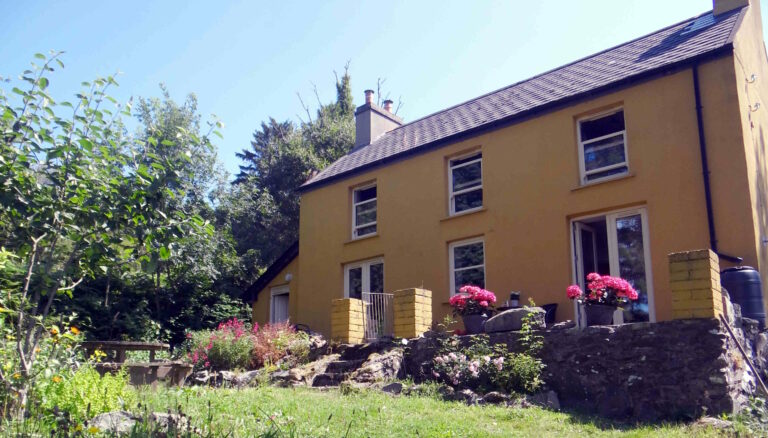
We live and work in balance with the land and nature and learn to be more and more self-sufficient. It means that we provide for ourselves without relying too much on external sources of goods or services. Living on a smallholding means we produce food from the land, generate power through solar panels, and manage waste through composting or other sustainable methods.
Quality of life
We have lived in towns and small villages for years worked in an office, paid our mortgages etc. We shared our dreams about the quality of daily life in the future. We set things in motion step by step, and after a couple of years, we moved to Annagh More in Ireland.
What we do now, becoming more self-sufficient, is not returning to some idealized past. It is going forward to a new and better sort of life. It is about the challenge and the use of daily initiative and variety. It means accepting complete responsibility for what you do or don’t. One of its greatest rewards is the joy that comes from seeing each job right through, from sowing your vegetables to eating and preserving them for the winter. Choosing daily tasks is influenced by the season and how the wheatear develops during the day. We work here with volunteers and social farming participants.
Craftsmanship
We are naturally intended to do diverse things and have many skills. Living on the land brings back those skills and knowledge. How do we do this? We could not rely on a family of farmers, learning skills and lifelong practice, so we love to watch other initiatives on YouTube, share knowledge in Facebook groups for free and choose some nearby courses and workshops.
Permaculture
Looking at a forest, the ecosystem hardly “leaks” any nutrients. Nature is extremely careful with the available raw materials. We rotate various animals and plants on the different parts of the land so that each species takes what it needs out and put what it has to contribute back.
Food
Our food sources are getting farther away, and the food goes through more and more industrial processing. The best food comes from our garden and our environment, local farmers, farmers’ markets, Food refill station etc.
Ecological waste treatment
Some waste products are just the ideal food for other species. We have a compost bin in the vegetable garden for kitchen waste. We use Ecological detergents and cleaning products and recycle and reuse as much as possible.
Water; Uisce in Irish
In the lower garden is a Well. Through old maps of the area and stories about how people lived in it, we know that People built their homes, the old cottages on our land because there was a well, so they had their fresh water supply.
We use the water from the well and the mountains in daily life.
Water recycling
We transport our wastewater through pipelines to the septic tank system. The system filters the wastewater until it, as so-called grey water, goes back into nature.

You are welcome to stay and enjoy the hospitality on our working smallholding farm.
